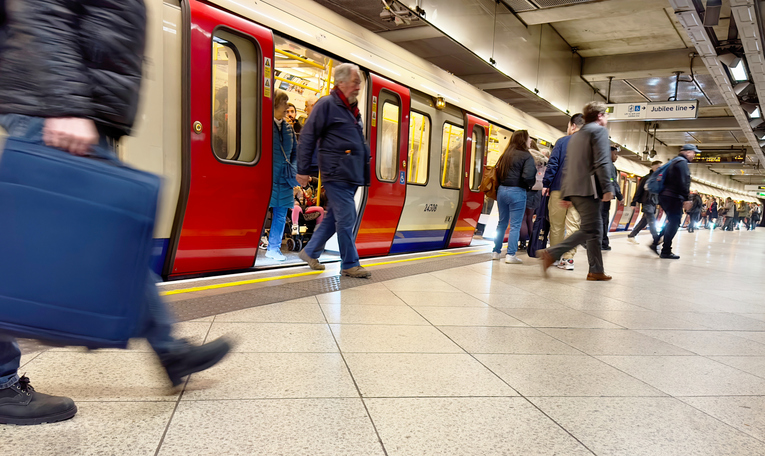When you’re travelling abroad, a good way of getting the measure of any city is the culture of its public transport. I visited Australia several times as a child and I was surprised by how chatty strangers were on trains and buses. People sat down and struck up a conversation with whoever was sitting next to them. I’ve noticed that natural connection between passengers in many other countries.
It’s different in London, where passengers generally sit in tense silence, avoiding any interaction with each other and not even acknowledging that anyone had the temerity to travel at the same time as them. If something extreme happens like a truly epic delay, people might start to exchange a few eye rolls and even some brief, frustrated words, but they’ll quickly withdraw back into themselves.
The tyrannical silence of public transport is probably a greater and more pervading problem
At the top of many Londoners’ gripe list isn’t the silence of public transport but the noise. ‘Headphone dodgers’, who play music, podcasts or social media videos out loud through their phone’s speakers, have been annoying passengers of late. They’re the new version of the ‘I’m on the train’ phone calls that plagued us when mobile phones appeared in the mid-90s.
Opposition MPs have been calling on the government to do something about ‘headphone dodgers’. Shadow transport secretary Richard Holden said passengers shouldn’t have to ‘endure somebody else’s choice of crap music’ and the Liberal Democrats called for fines of up to £1,000.
Sadiq Khan has spotted another bandwagon and hopped on board. The mayor has launched a campaign encouraging people to use headphones when they play music and other content on London’s public transport, with posters appearing this week on the Elizabeth line asking travellers not to play audio out loud or have conversations on speaker mode.
On the face of it, this seems a sensible and welcome development because ‘headphone dodgers’ can be a bit of a nuisance. But the tyrannical silence of public transport is probably a greater and more pervading problem. It’s a problem that’s got worse in the smartphone era because almost everyone is plugged into headphones now, listening to our music, pods or audiobooks and avoiding the horror of even momentary eye contact.
Encouraging more people to retreat into our private worlds will only make trains and buses even less sociable. Yes, the ‘headphone dodgers’ often seem to be listening to ‘crap music’ – tinny, angry urban songs seem surprisingly popular – but I’ve also been in carriages where an impromptu DJ plays a crowd-pleasing banger that puts a smile on most of their fellow travellers’ faces.
I’ve seen barriers between passengers melt away when they team up to ask a ‘headphone dodger’ to pipe down. A poll for the Lib Dems found that half of respondents wouldn’t feel comfortable asking somebody to turn down their music on public transport but I’ve often seen people do just that and the offender has always blushed and complied.
For all the media hype, these nuisances are few and far between but the stiff silence that they interrupt is almost universal and it comes with its own price. Watch the news any day of the week and ask yourself whether we seem like a society that needs less or more connection.
On that note, I was pleased to see that Khan is planning a second poster campaign that will encourage passengers to look up from their phones and become aware that others travelling on public transport may be in more need of a seat. Let’s have more stuff like that which brings us a bit closer together and a bit less of the restrictions that move us a little further apart.
Yes, fewer people wearing headphones does mean there would be antisocial noise sometimes, but it also means we might start speaking to each other more. We might find that’s a good thing and that it plays a part in ironing out the sort of sadness and alienation that leads someone to blast their music on a train.







Comments